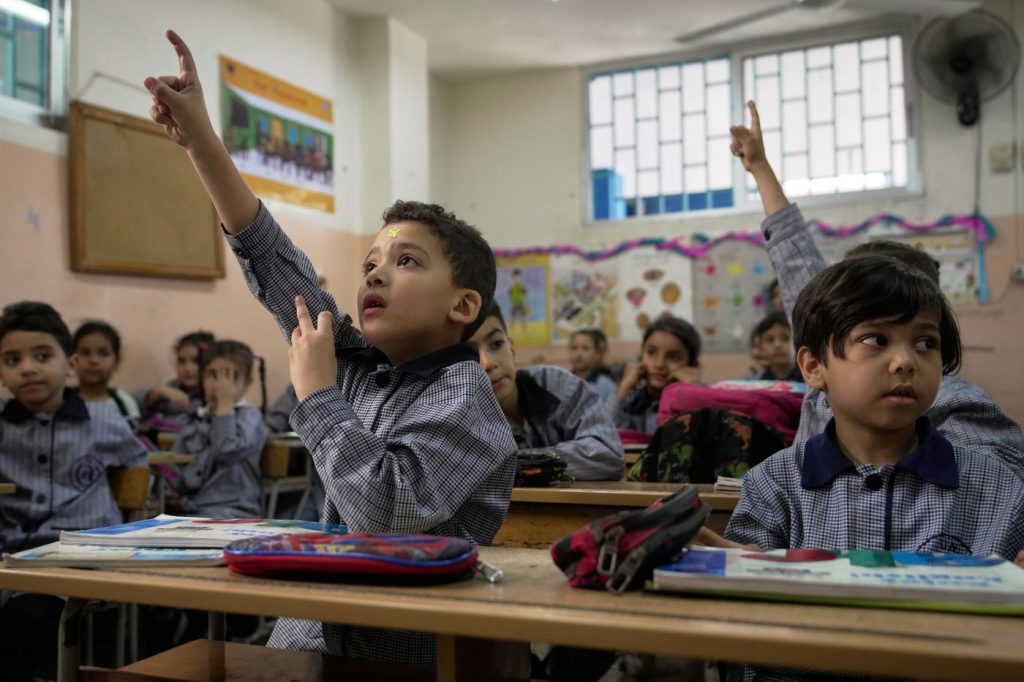KAKUMA, Kenya (AP) – Aujene Cimanimpaye, a refugee from the Democratic Republic of Congo, is among the many displaced families relying on humanitarian assistance at the Kakuma refugee camp in northern Kenya. Since fleeing her home in 2007 due to violence, Cimanimpaye has been dependent on support from the United Nations, raising her nine children in an environment where access to basic needs is a significant challenge. “We cannot go back home because people are still being killed,” she reflects, highlighting the ongoing threat of violence in her homeland. The Kakuma camp, which hosts over 300,000 refugees, serves as a temporary refuge for families escaping conflict across East Africa.
Three years ago, Cimanimpaye and her family relocated from the Nakivale Refugee Settlement in Uganda to Kenya, joining a growing population of over a million refugees in the country. Similarly, Bahati Musaba, another Congolese refugee at the nearby Kalobeyei Refugee Settlement, expresses gratitude for the U.N. agencies that have supported her children’s education, provided food, water, and medicine—all vital resources for survival in the camp.
This year, however, the landscape of humanitarian aid has drastically changed, with cash transfers and other essential U.N. support programs being suspended. As the U.N. celebrates its 80th anniversary, the humanitarian agencies are grappling with an unprecedented crisis largely attributed to drastic cuts in funding from major donors, especially the United States. The decrease in international aid spending began during the Trump administration, leading many humanitarian organizations to raise concerns about the potential jeopardy faced by millions relying on U.N. assistance.
With the U.S. traditionally accounting for at least 40% of the budgets for key U.N. agencies, the funding cuts have forced many organizations to reduce staff and revise their aid spending. Jan Egeland, a seasoned humanitarian worker, compares the current upheaval to nothing he has seen in his 40-year career, warning that the increasing gap between urgent needs and available resources could result in dire consequences for vulnerable populations globally.
Amidst these pressures, U.N. Secretary-General Antonio Guterres has requested agency heads to consider reducing their staff by 20%. Suggestions for sweeping reforms have also surfaced, potentially altering how the U.N. allocates aid. Humanitarian work, often perilous, faces not only funding issues but also rising violence against aid workers. For instance, 2024 was noted as the deadliest year for humanitarian personnel, largely due to the ongoing war in Gaza, leading to the suspension of aid operations in some conflict areas like Yemen.
The United Nations Relief and Works Agency for Palestine Refugees in the Near East (UNRWA) has faced additional challenges, as its operations delivering education, food, and health care services to Palestinian refugees are endangered by cuts from the U.S. and criticisms from Israel. The agency has been labeled by Israel as a source of anti-Israel sentiment, while it maintains that its programs are essential for the survival of those in need.
The global food crisis is exacerbating humanitarian needs, with a staggering 343 million people projected to be acutely food insecure—triple the number from four years prior. As funding drops by 40%, organizations like the World Food Programme (WFP) are compelled to cut their workforce by about a quarter, raising alarms about the future of food security and aid initiatives.
The U.N. and its partners, including private-sector and government-backed organizations, are confronted with a need to reassess their roles in the changing landscape of global humanitarian aid. The lack of sufficient funding from wealthy nations, coupled with increasing tensions and armed conflicts, casts uncertainty on how effectively the U.N. can fulfill its mission as an aid provider. Achim Steiner, administrator of the U.N. Development Program, emphasizes the necessity for member states to actively engage in addressing the humanitarian shortcomings, stating that real change must originate within national capitals.











